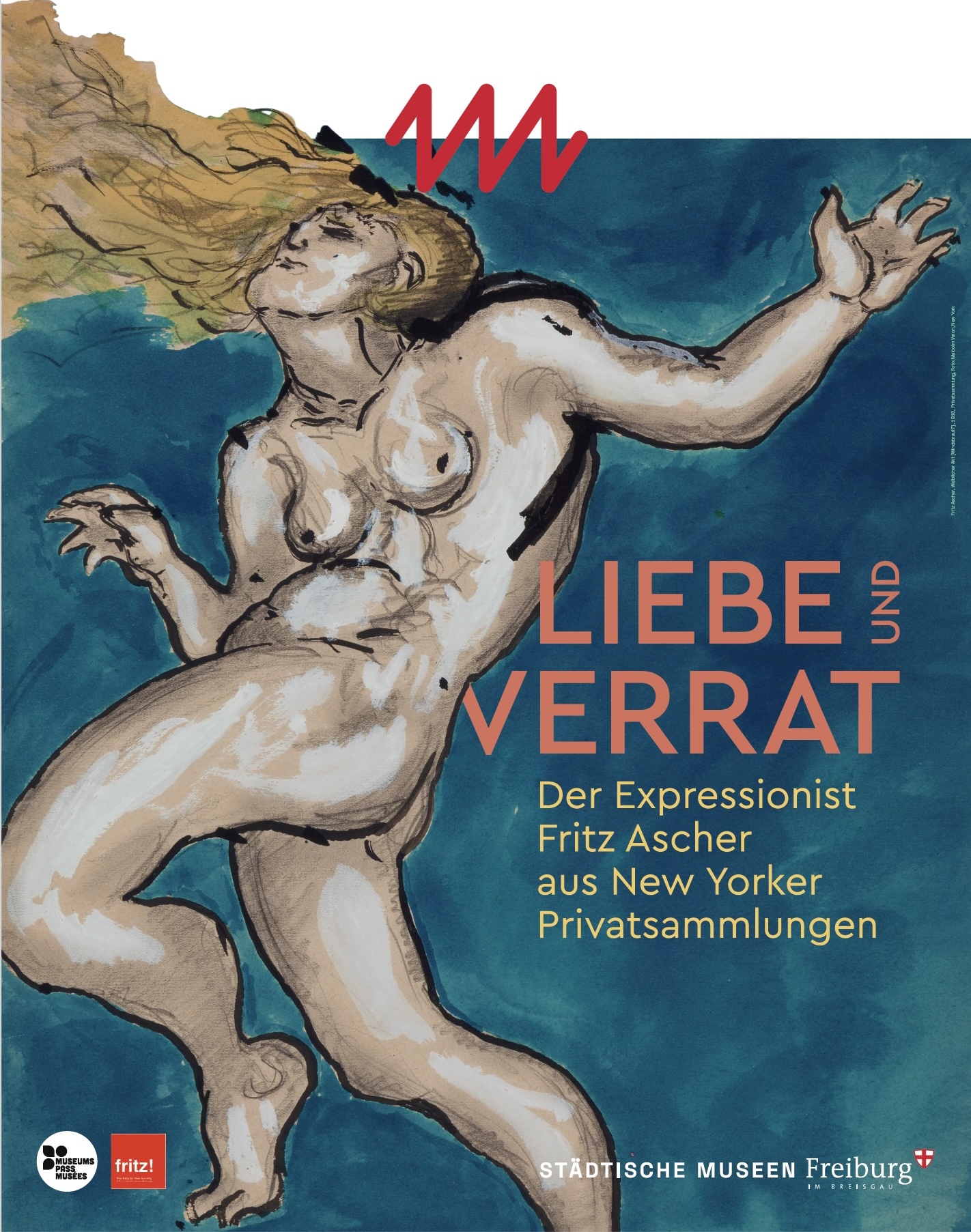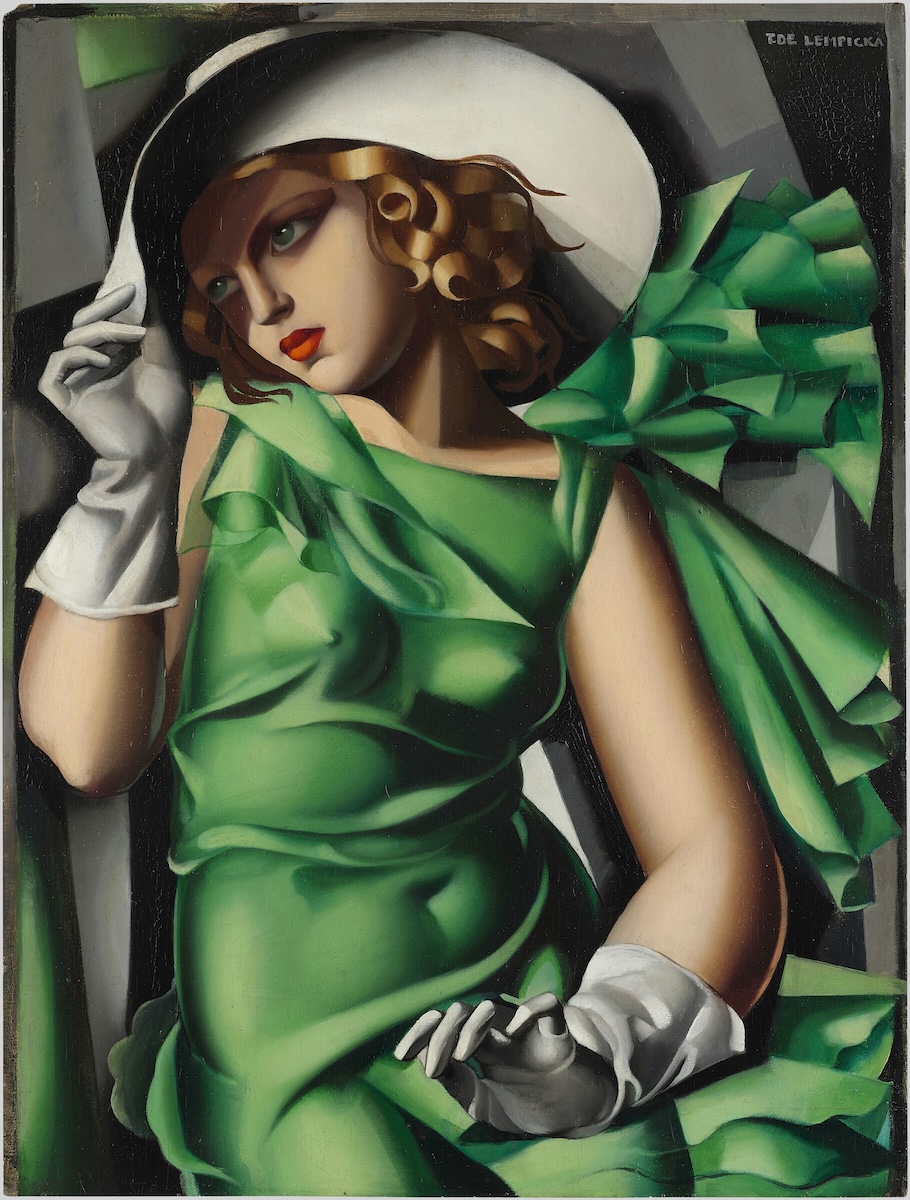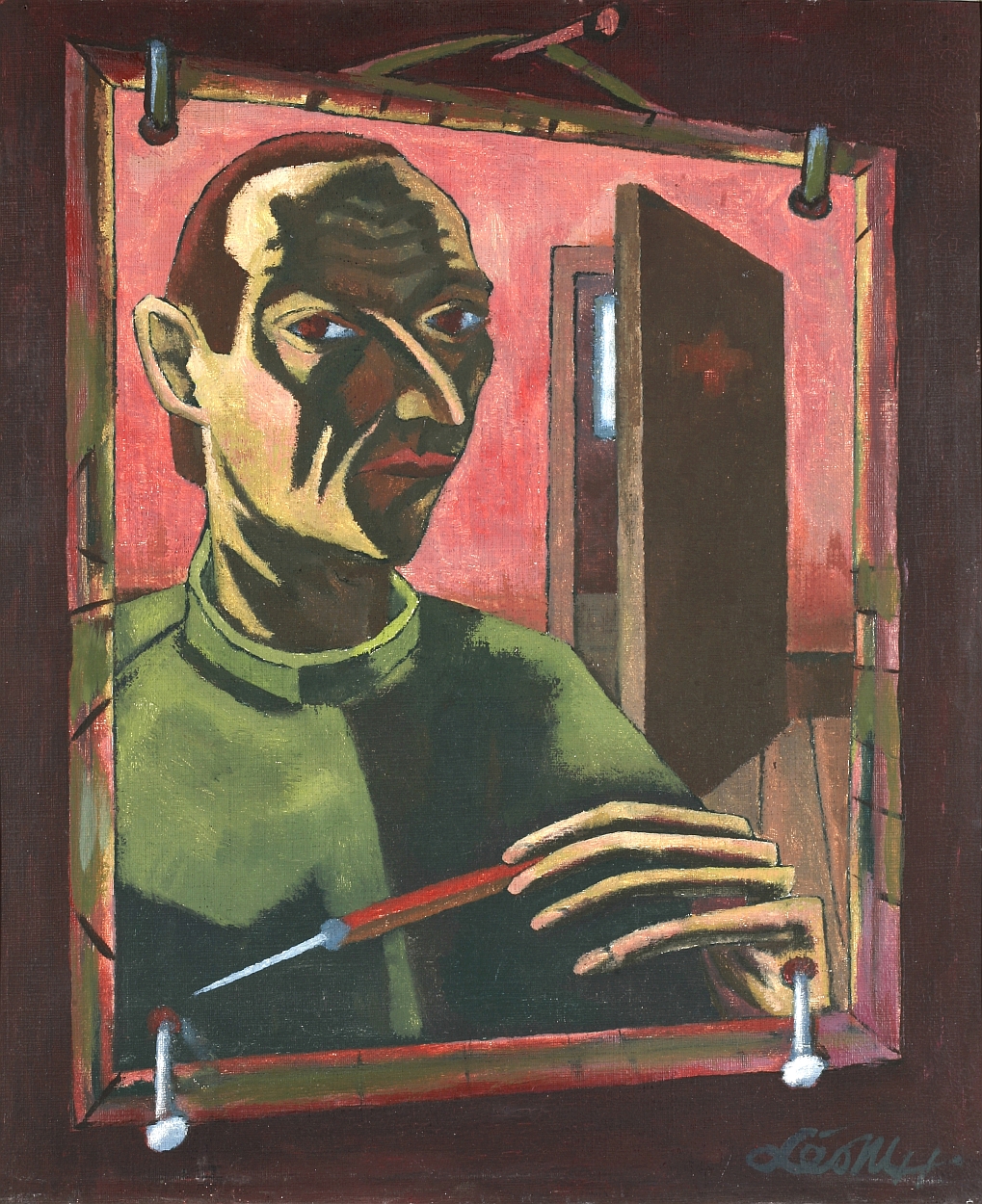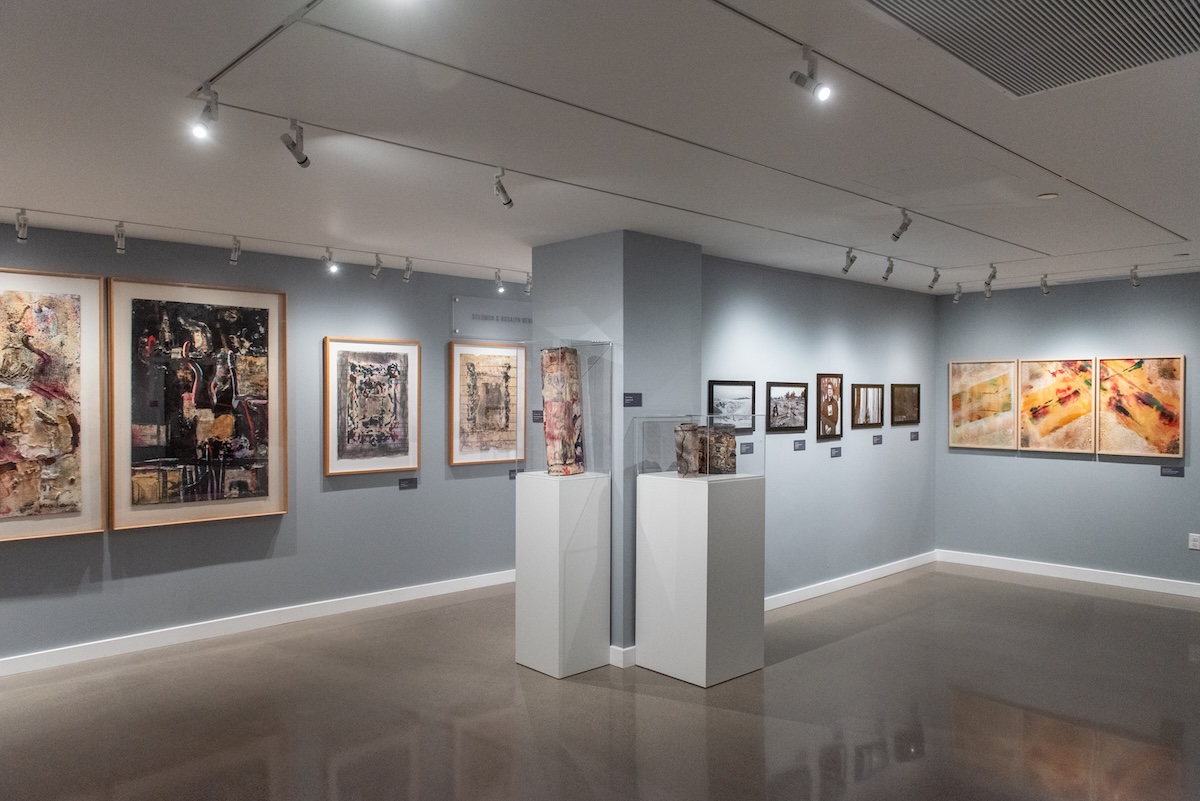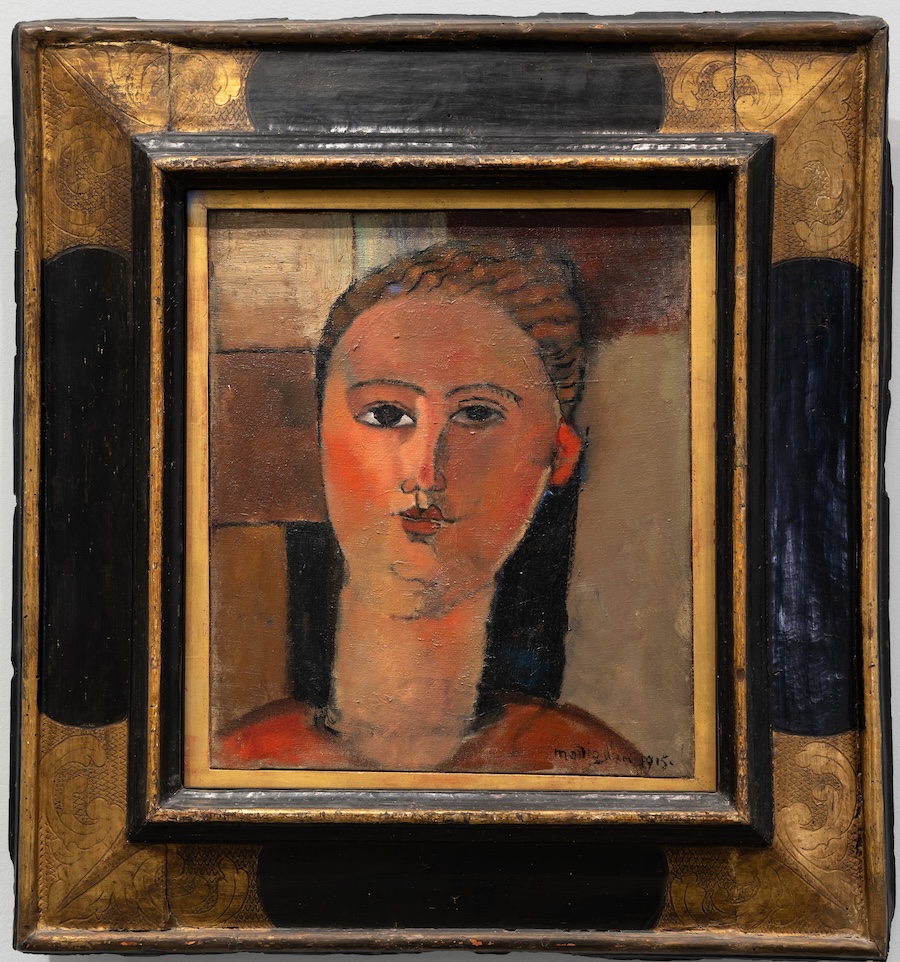Rachel Stern2025-06-23T04:46:38-04:00June 23rd, 2025|Newsletter|
Dear Friends, Art has the power to enlighten, uplift, and help us recognize our common humanity even when confronted by inhumanity. At FAS, we are constantly inspired by the artwork created by people who were persecuted for their identity or for their art by the German National Socialists and their European Allies 1933-1945. Learning about the strength and resilience of the artists and the moral and ethic values of those who refused to be perpetrators or bystanders helps guide our reflections and actions today. In our 2024 program report you can find out more about our work: PROGRAM REPORT 2024 Five more days in our fundraising campaign to ensure our virtual programming! Every donation will be [...]
Rachel Stern2025-04-29T13:05:45-04:00April 29th, 2025|Selected Publications|
Der spätexpressionistische Künstler Fritz Ascher (1893–1970), von dem sich heute wichtige Werkbestände in New Yorker Privatsammlungen befinden, überlebte zwei Weltkriege und die Verfolgung durch die Nationalsozialisten. Gemeinsam mit der Fritz Ascher Society für verfolgte, verfemte und verbotene Kunst, New York, präsentiert das Augustinermuseum in Freiburg erstmals sein Frühwerk in einer konzentrierten Auswahl graphischer Arbeiten. Mythologische und literarische, historische und biblische Themen zeigen die Spannbreite von Aschers Interessen. Stets ist er ein genauer Beobachter seiner Zeit. Seit 1916 befasst er sich in intimen Zeichnungen mit den Themen Liebe und Verrat. Die Urkatastrophe des Ersten Weltkrieges und die revolutionären Unruhen in Berlin führen ihn zu christlich-spirituellen Inhalten, die er radikal neu interpretiert. Ascher kreiert mit seiner einzigartigen künstlerischen Stimme expressive Werke [...]
Rachel Stern2025-04-29T10:30:15-04:00April 29th, 2025|Newsletter|
Dear Friends, May is the month during which we celebrate the fifth anniversary of our virtual event series "Flight or Fight. stories of artists under repression." You can now find about 150 artist videos on our YouTube channel @fritzaschersociety! Throughout this month, we ask you to donate to the Fritz Ascher Society to enable us to continue this important virtual program, which brings artists to a global audience, who are not widely known because they were persecuted or murdered by the German Nazis. We need to raise $10,000.00 to ensure the continuation of this program. And I am happy to announce that every donation made this month will be matched dollar-for-dollar until we reach that amount, so please: [...]
Rachel Stern2025-04-29T10:31:47-04:00April 2nd, 2025|Newsletter|
Dear Friends, Spring is here, with the energy of renewal and growth and blossoming trees, plants and flowers. Holidays abound, and we honor Yom HaShoah, Holocaust Remembrance Day. We have organized fabulous virtual events for you, but first I have a story with a happy ending for you, at least for the art: Pretty exactly a year ago, the reporter and writer Julie Zigoris told the story of artwork that was found on a park bench in San Francisco’s Crane Cove Park in 2022. City employees had rescued the art and found the majority of the artworks to be by the Jewish painter Ary Arcadie Lochakov (1892-1941), a member of the famed School of Paris group that includes [...]
Rachel Stern2025-04-29T10:32:39-04:00March 7th, 2025|Newsletter|
Dear Friends, During these breathtakingly turbulent times, we prepared very diverse online programs for you: we start this month by looking back at US history by discussing immigrant American artist Ben Shahn, then focus on the state of Nazi era art restitution by presenting the much disputed collection of the Jewish art dealer Alfred Flechtheim, and conclude the month with a panel discussion of curator Ori Z Soltes, poet Rabbi Ronnie Cahana, and photographer Kitra Cahana about our Portland (OR) exhibition Survival and Intimations of Immortality: The Art of Alice Lok Cahana, Rabbi Ronnie Cahana, and Kitra Cahana, which is on view until May 25. First we present the American artist, Social Realist painter, and child refugee from Tzarist-governed [...]
Rachel Stern2025-03-12T14:22:13-04:00March 6th, 2025|Events, Lectures, Past Events|
Georgetown University professor Ori Z Soltes will speak about Ben Shahn (1898-1969), who arrived in 1906 as a child to the United States from Tsarist-governed Lithuania. Four years after the Tsarist authorities had exiled his father to Siberia for alleged revolutionary activities, his mother managed to bring the family to New York. There they reconnected with Ben's father who had escaped from Siberia and made it to the US by way of South Africa. Image above: Ben Shahn, Detail of the Mural "The Meaning of Social Security," Wilbur J. Cohen Federal Building, Washington, D.C. Within 25 years Shahn emerged as perhaps the key figure in the developing arena of American Social [...]
Rachel Stern2025-04-01T11:50:07-04:00March 3rd, 2025|Events, Lectures, Memory, Past Events|
Join curator Ori Z Soltes, Rabbi Ronnie Cahana, and Kitra Cahana for a conversation about Survival and Intimations of Immortality: The Art of Alice Lok Cahana, Rabbi Ronnie Cahana, and Kitra Cahana. Image above: Alice Lok Cahana, 1940-44 Triptych: left panel, 1984. Collection Ronnie and Michael Cahana, Inv. 052 This unique and powerful exhibition at the Oregon Jewish Museum and Center for Holocaust Education explores the role of art and creativity, bringing the past into the present by focusing on three generations of artists from the same family. The artists and curatorial team will share their insights about the work in the exhibition, how the show was made, and the impact it had, and share [...]
Rachel Stern2025-03-26T16:04:21-04:00February 14th, 2025|Events, Lectures, Past Events|
Journalist and author Michael Sontheimer speaks about Alfred Flechtheim, who was born in 1878 in Münster as the son of a wealthy German Jewish grain dealer. He was trained as a trader but did not want to stay in the family business. As he was fascinated with art, he left his hometown and moved to Düsseldorf, where he opened a gallery in 1913. Image above: Rudolf Großmann, Alfred Flechtheim, 1922-27. Pencil, ink, and gouache on paper, 5.3 x 3.8 in. Museum für Moderne Kunst, Freiburg (Germany) G 62/008 b. After serving in the German Army during the First World War, in 1921 he opened a second gallery in Berlin, the place to be in the 1920s. [...]
Rachel Stern2025-02-12T07:45:33-05:00February 12th, 2025|Newsletter|
Dear Friends, February is a busy month with many interesting events in our orbit, starting with two film screenings at the JCC Manhattan, continuing with a virtual conversation with author Melvin Bukiet and a presentation of Fritz Ascher's art, and two exhibitions, of which one is closing in early March in Germany, and one just opened in Portland, Oregon. Please join us at the JCC Manhattan for two important film screenings: Tuesday, February 4, 7:00PM ET The Return from the Other Planet, 2023 Screening followed by Q+A with director Assaf Lapid Marlene Meyerson JCC Manhattan, New York 20% off tickets with code fritz2025 Tuesday, February 11, [...]
Rachel Stern2025-03-02T04:34:45-05:00January 20th, 2025|Events, Lectures, Past Events|
Rachel Stern will present insights into the art and life of the German-Jewish artist Fritz Ascher and the mission of The Fritz Ascher Society for Persecuted, Ostracized and Banned Art. Introduced by Richard Quinlan, Director of the Center for Holocaust and Genocide Education at Saint Elizabeth University in Morristown (NJ). Image above: Fritz Ascher, Male Portrait in Red, c. 1915. Private collection © Bianca Stock Fritz Ascher (1893-1970), a painter, graphic artist, and poet, was recommended to the art academy in Königsberg by the renown German painter Max Liebermann at the age of 16. From 1913 onwards, he gained recognition as a painter in Berlin. Ascher was a keen observer of his era; the [...]
Rachel Stern2025-01-09T14:06:25-05:00January 2nd, 2025|Newsletter|
Dear Friends, Happy 2025! An eventful month lies ahead. First of all, I am very excited to announce that you now can experience our website in multiple languages - try it out: https://fritzaschersociety.org/. Here at the Fritz Ascher Society, we are starting the year with two virtual talks that are connected to exhibitions - one in London and one here in New York: WEDNESDAY, JANUARY 8, 12:00PM EST FRED KORMIS (1894-1986)– SCULPTING THE TWENTIETH CENTURY PRESENTATION BY BARBARA WARNOCK, LONDON (ENGLAND) REGISTER HERE Fred Kormis, Two Heads, c. 1930s © Wiener Holocaust Library Collections Sculptor and printmaker Fred Kormis (1894-1986) was born into an Austrian and German-Jewish family in Frankfurt, Germany, was wounded fighting [...]
Rachel Stern2025-01-09T13:35:50-05:00December 24th, 2024|Newsletter|
Dear Friends, We wish you Happy Holidays with Mayer Kirshenblatt's painting Hanukkah, in which he remembers celebrating the holiday with his family in Opatów (Apt) in the 1920s. "This is Hanukkah at home with my father, mother, and brothers. We lit the candles and sang Maoz tsur (Rock of Ages). I painted a few notes to indicate that we were singing. It was a special day for us because we were let out of school early. Father gave me Hanukkah gelt, a few pennies for a present, in honor of the holiday. Mother cooked latkes, potato pancakes, which are very delicious. She grated raw potatoes, added eggs, and flour and fried the pancakes in shmalts, [...]



